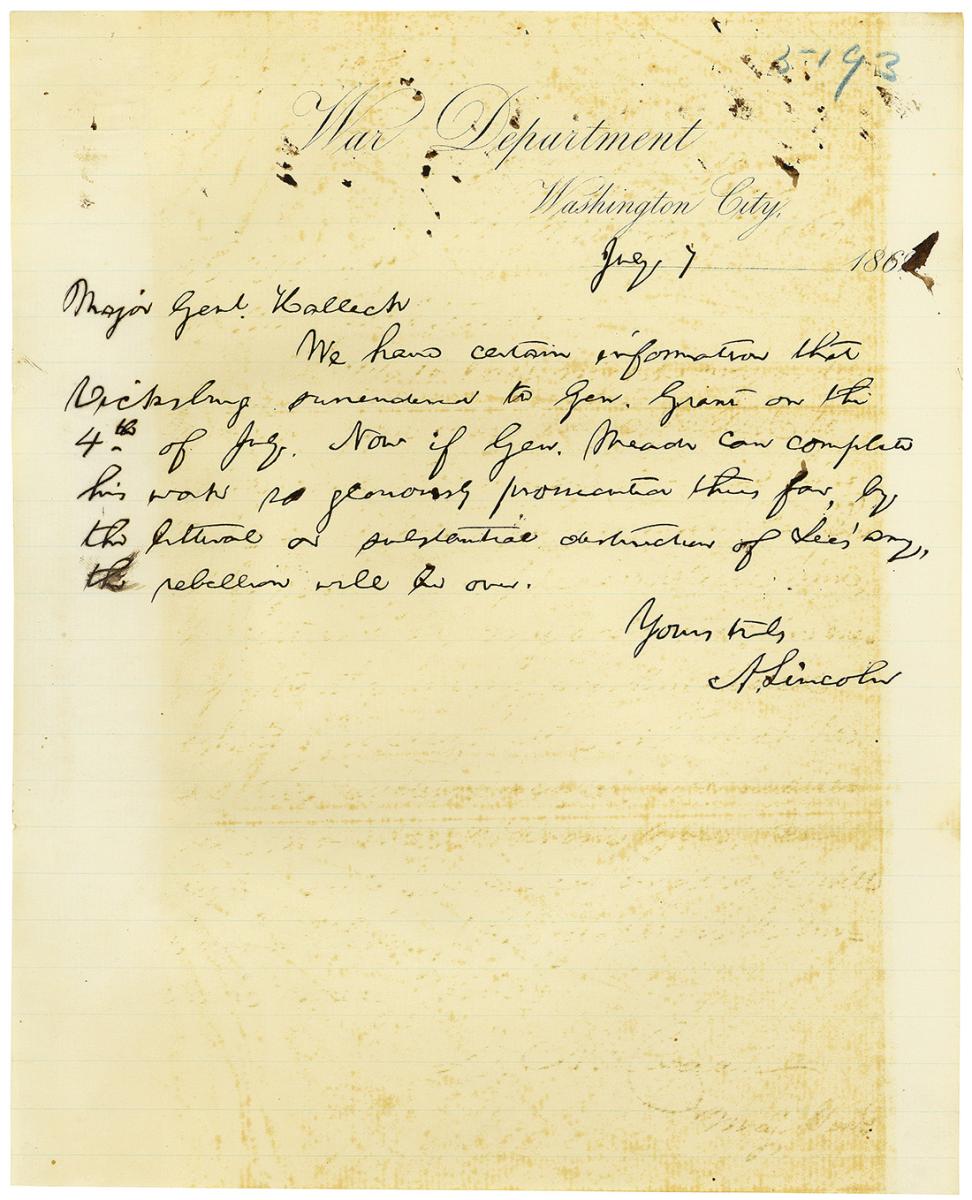
Lincoln’s Own Words, Newly Discovered
Fall 2007, Vol. 39, No. 3 | Pieces of History
Four days after the Battle of Gettysburg and three days after the fall of Vicksburg, President Abraham Lincoln felt optimistic. With these two victories, it looked as if the Union could soon bring the war to an end. Lincoln sent a telegram to Maj. Gen. Henry Halleck, his general-in-chief, expressing his hopes:
July 7, 1863
Major Genl Halleck
We have certain information that Vicksburg surrendered to Gen. Grant on the 4th of July. Now if Gen. Meade can complete his work so gloriously prosecuted thus far, by the litteral [sic] or substantial destruction of Lee’s army, the rebellion will be over.
Yours truly,
A. Lincoln
General Halleck transmitted the President’s message verbatim that same day in a telegram to Gen. George Meade at Gettysburg.
The contents of Halleck’s telegram have long been known through its 1889 publication in The War of the Rebellion: A Compilation of the Official Records of the Union and Confederate Armies. The existence of Lincoln’s original handwritten message, however, was unknown until this past May.
An archivist at the National Archives Building in Washington, D.C., chanced upon the document while searching for material in response to a reference request. The message was found among the Adjutant General’s records in a collection of “Generals’ Papers,” which includes miscellaneous documents relating to Halleck.
This discovery fills out the historical record by confirming that Halleck transmitted the President’s telegram accurately and immediately.
Lincoln’s hopes for an imminent end to the war, though, came to naught. Both Halleck and Lincoln implored Meade to fight Gen. Robert E. Lee’s army before it crossed the Potomac River, but Meade hung back. On July 14, 1863, Lee escaped across the Potomac into Virginia, and the Civil War raged on for almost two more years.
